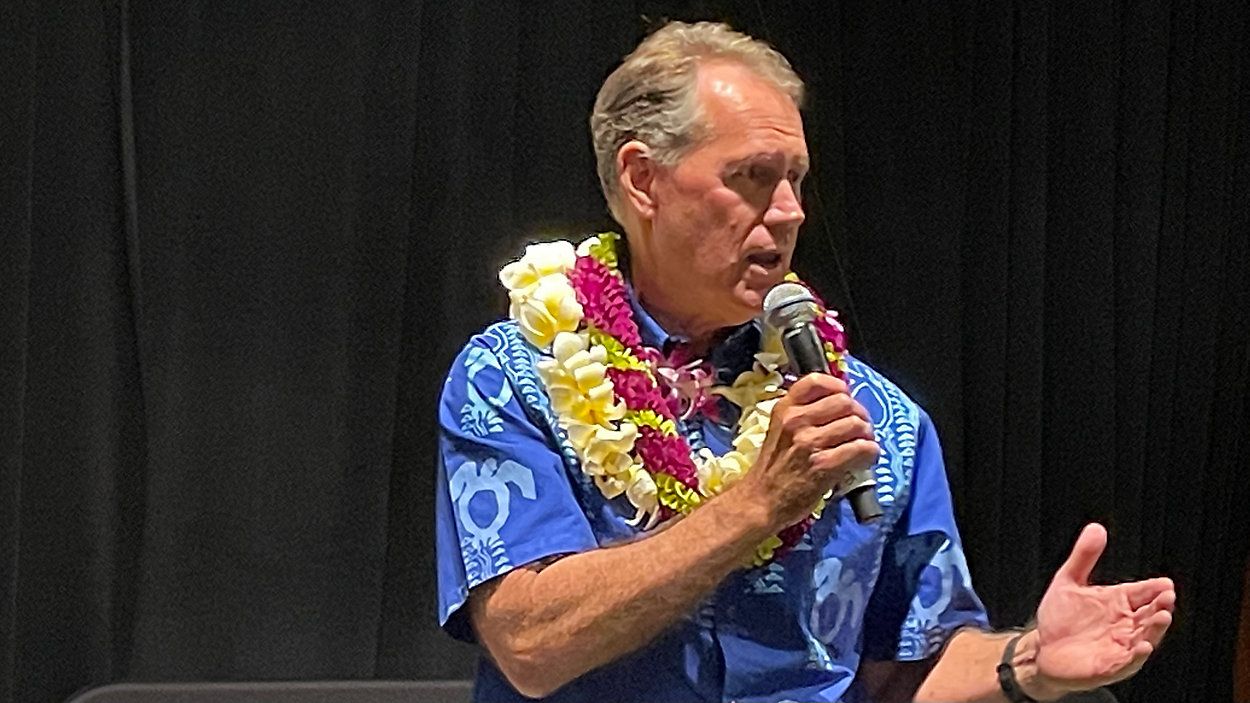WASHINGTON — President Joe Biden directed the U.S. Secretary of Commerce Gina Raimondo to start the process of designating waters of the U.S. Pacific Remote Islands as a National Marine Sanctuary on Tuesday, drawing praise from supporters who have advocated such a designation for more than a decade.
The sanctuary designation process directed by the president will include opportunities for public comment. Biden also directed Raimondo and Secretary of Commerce Deb Haaland to conduct a public process to work with indigenous communities of the Pacific to appropriately rename the existing Pacific Remote Islands National Monument (and potentially the islands themselves) and to provide posthumous recognition will also be awarded to the Hui Panalaau — 130 young, mostly Native Hawaiian men sent to secure U.S. territorial claim to the islands in the run up to World War II.
“Mahalo to President Biden for his support in protections of the Pacific Remote Islands,” said Jonee Peters, executive director of Conservation Council for Hawaii and a Hui Panalaau descendant. “With his support, this action ensures a healthy marine ecosystem of native species, corals, seabirds, and all of the marine ohana that support the perpetuation of traditional voyaging practices in Oceania. Furthermore, I am grateful for his recognition of the bravery and sacrifices made by the Hui Panalaau.”
Parts of U.S. Pacific Remote Islands waters were designated as a National Marine Monument by Pres. George W. Bush in 2009 and expanded by President Barack Obama in 2014.
The Pacific Remote Islands Coalition, which has been working toward expansion since 2014, said a sanctuary designation would add about 265,000 square miles of highly protected waters, resulting in the creation of the world’s largest highly protected marine area in national waters at about 777,000 square miles, an area larger than Alaska.
For much of the past year, the coalition has worked closely with U.S. Rep. Ed Case, a member of the U.S. House Natural Resources Committee’s Subcommittee on Water, Wildlife and Fisheries, to lobby the administration for maximum protection of U.S.-owned and controlled waters surrounding the islands, including the atolls and reefs of Baker, Howland and Jarvis Island; Johnson, Wake and Palmyra Atoll; and Kingman Reef.
“These waters are among the last pristine marine environments on our Earth, and also the most fragile,” Case said. “Our world’s oceans are at mortal risk, a breaking point precipitated by the unsustainable overfishing and other resource extraction, debris and land-based pollution, exacerbated and compounded by the devastating and pervasive marine effects of climate change.”
During his prior term in Congress from 2002 to 2007, he uccessfully pushed for the creation of the Papahanaumokuakea Marine National Monument.
“The Pacific Remote Islands, including their waters, are not only a critical interlocking component of the broader Pacific marine ecosystem, but an integral part of the historical and cultural ties of the indigenous peoples of the Pacific, as well as a key source of scientific knowledge on the preservation of a sustainable ocean environment,” Case said. “As a nation, we have a duty to ensure the long-term survival of the PRI’s ecological, scientific and cultural value. This process will do just that and will achieve the marine protection goals of President Biden’s America the Beautiful Initiative to protect 30% of U.S. lands and waters by 2030.
Michael Tsai covers local and state politics for Spectrum News Hawaii.



